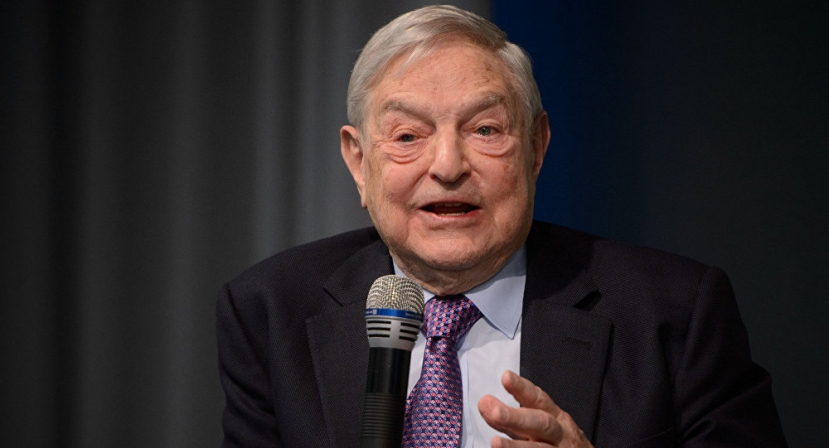US Fact-Checking Institute Sponsored by Soros on War Path Against 'Fake News'
26.01.2017 18:59
 US Fact-Checking Institute Sponsored by Soros on War Path Against 'Fake News'
US Fact-Checking Institute Sponsored by Soros on War Path Against 'Fake News'
The fake news "hysteria" has recently resulted in a number of initiatives to fight against the so called misleading information and false statements. The campaign has been launched by such Internet giants, as Facebook and Google.
For instance, Google has permanently blocked 200 publishers which are labelled by the search engine giants as fake news content sites. In its turn, German Facebook tasked the fact-checking Correctiv research center with filtering out fake news in its news feed.
In an interview with Sputnik Germany, experienced freelance journalist Paul Schreyer revealed some surprising facts about fact-checking teams.
According to Schreyer's research, the fake news campaign was originally born in the US in a journalist school called the Pointer Institute in Florida. The school had been running a so-called International Fact Checking Network for over a year, consisting of journalists working for such major media outlets like AP or ABC.
"The Pointer Institute's network is indirectly sponsored by the US government via a think tank, but also by the Bill Gates foundation, Google, George Soros and some other foundations. So you see in the background of the campaign against fake news there is a network of very financially strong elites and the government. You should keep in mind that there are not just journalists who are concerned about the reputation of the industry, but also very influential financiers in the background," the journalist told Sputnik Germany.
In particular, Schreyer found out that the German Correctiv team also receives a lot of money from influential supporters.
"Correctiv has existed since 2014 and is, according to own data, an independent research center. It is funded by the Brost Foundation, a foundation of a well-known journalist, who built the WAZ media group in the post-war period. Correctiv receives about one million euros every year according to official figures, and there are also funds from private sponsors, from the Federal Center for Political Education and some media groups," Schreyer stated.
The journalist also pointed out that the members of the team have not yet worked out certain criteria which they will use to fact-check the information and define false statements.
Although Correctiv consists of professional journalists, who worked for major German media outlets, like Der Stern und Der Spiegel, exactly this can be a problem during their work. In particular, it is not quite clear what kind of approach they will use to independently and unbiasedly check the content of large media groups with whom they have connections with. According to Schreyer, it is very difficult to define what fake news, actually, is.
"David Schraven [Correctiv team member] repeatedly said that they do not want to assess opinions, but rather check factual statements. This sounds quite reasonable, but when you think about it, you realize that you can't separate opinions and factual statements so clearly at all. There can be statement in the middle of the two. For example, "Putin jeopardizes the security of Europe." Is this now an opinion or a factual statement? Can this be checked? What criteria should be used to check it? There you have a grey zone which can very fast fall into the area of the censorship," the journalist said.
Earlier, it was reported that German Facebook will trial a fake news filtering system for German users of the site, allowing individuals to fact-check and report stories they suspect to be untrue. The users will be able to flag any story that appears in their newsfeed they suspect is fake news.
The story will then be dispatched to Correctiv and if the team determines the story to be fake, it will be marked as false and users seeing it in their feeds will be warned about its doubted authenticity. It will also be blocked from being promoted in users' feeds.
Commenting on the new initiative, Schreyer stated that it sounds to him, like censorship and added that "the whole fake news topic has turned into an incredibly hysterical debate at the moment."
Facebook representatives, in their turn, stated that by adding additional context to stories deemed fake, it gives people an opportunity to decide for themselves what to believe and what information they share.
